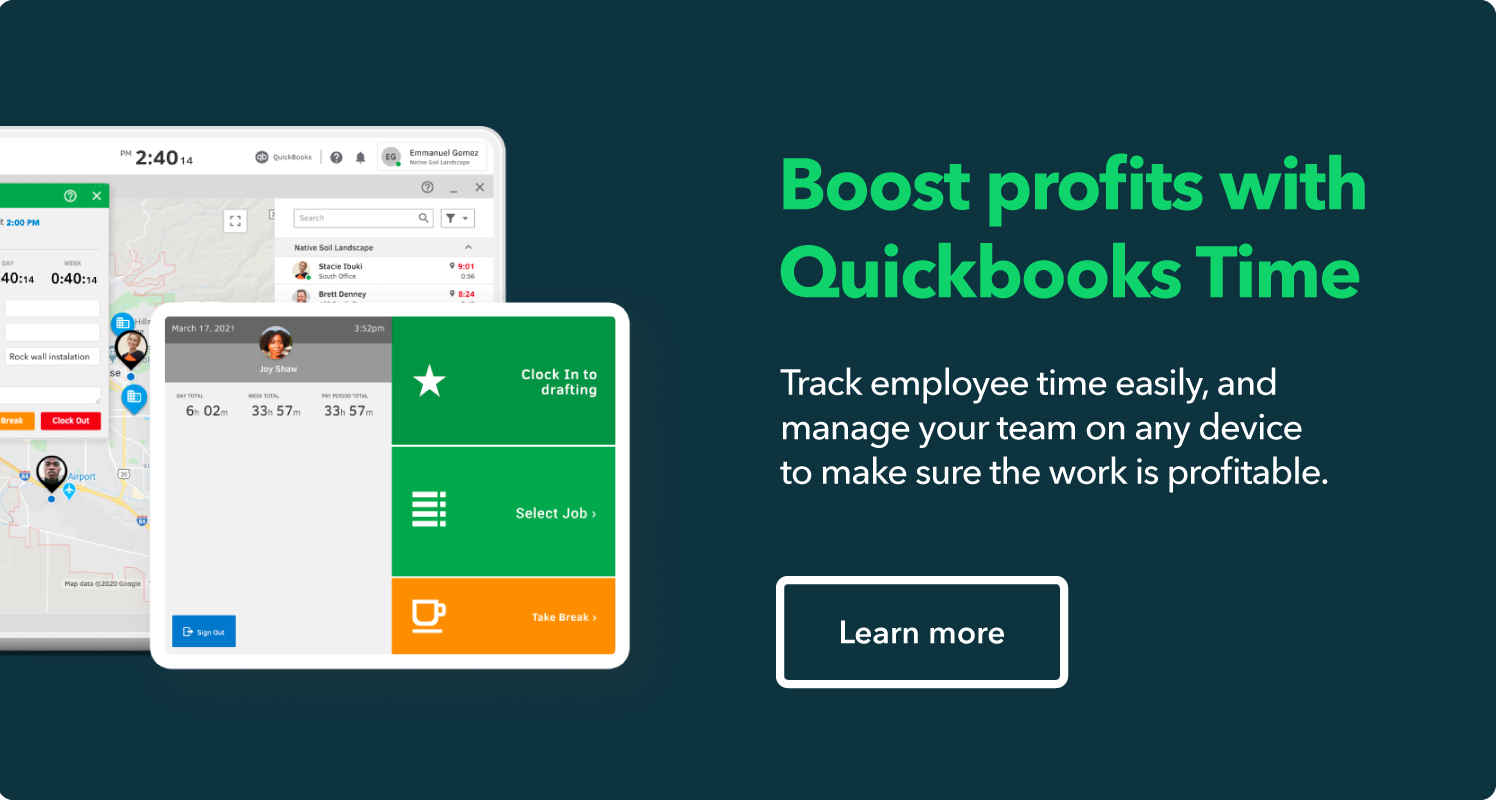As a small business owner, you know exactly how much money your business made (or didn’t make) each day because you track your finances closely. Some might say obsessively. We get it! Small businesses operate on tight margins, and every penny counts. But if you’re not tracking time with that same intensity, you’re not getting the full financial picture. After all, time is money—are you making every second count?
Time tracking has come a long way from paper punch cards and Excel timesheets. Modern time tracking solutions make it effortless for you and your employees to keep track of where time is spent. That time tracking data helps you make smarter decisions for your team and your business—increasing productivity, balancing work with life, and boosting profitability. That’s right, time tracking can actually help your business grow.




